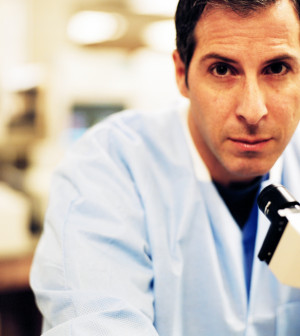- Could Your Grocery Store Meat Be Causing Recurring UTIs?
- Are You Making This Expensive Thermostat Error This Winter?
- Recognizing the Signs of Hypothyroidism
- 10 Strategies to Overcome Insomnia
- Could Artificial Sweeteners Be Aging the Brain Faster?
- Techniques for Soothing Your Nervous System
- Does the Water in Your House Smell Funny? Here’s Why
- Can a Daily Dose of Apple Cider Vinegar Actually Aid Weight Loss?
- 6 Health Beverages That Can Actually Spike Your Blood Sugar
- Treatment Options for Social Anxiety Disorder
Your Smartphone Carries Your Personal Bacteria


Your smartphone is personalized in a surprising way: It carries the same types of bacteria you have on your body, which suggests the devices could be used as bacterial and health sensors, a new study says.
Trillions of microorganisms, including bacteria, live on and in your body, some of them harmful, but many of them beneficial.
Researchers assessed the microbiological connection between 17 people and their smartphones by analyzing bacteria on their hands and on the touch screens of their phones.
Eighty-two percent of the most common bacteria on the participants’ fingers were also found on their smartphones. The link was stronger for women than for men, according to the study published online June 24 in the journal PeerJ.
“The sample size was small, but the findings, while intuitive, were revealing,” lead author James Meadow, a postdoctoral researcher in the Biology and the Built Environment Center at the University of Oregon, said in a journal news release.
“This project was a proof-of-concept to see if our favorite and most closely held possessions microbially resemble us. We are ultimately interested in the possibility of using personal effects as a noninvasive way to monitor our health and our contact with the surrounding environment,” he said.
For example, technology could be developed to screen the smartphones of health care workers and hospital visitors, rather than the people themselves, for possible exposure to harmful bacteria and viruses they may carry into or out of a health facility, the researchers said.
Microbiological analysis of smartphones might also reveal whether their users have been exposed to “biological threats or unusual sources of environmental microbes that don’t necessarily end up integrated into our human microbiome,” the researchers wrote.
More information
The U.S. National Institutes of Health has more about your microbes and you.
Source: HealthDay
Copyright © 2026 HealthDay. All rights reserved.










